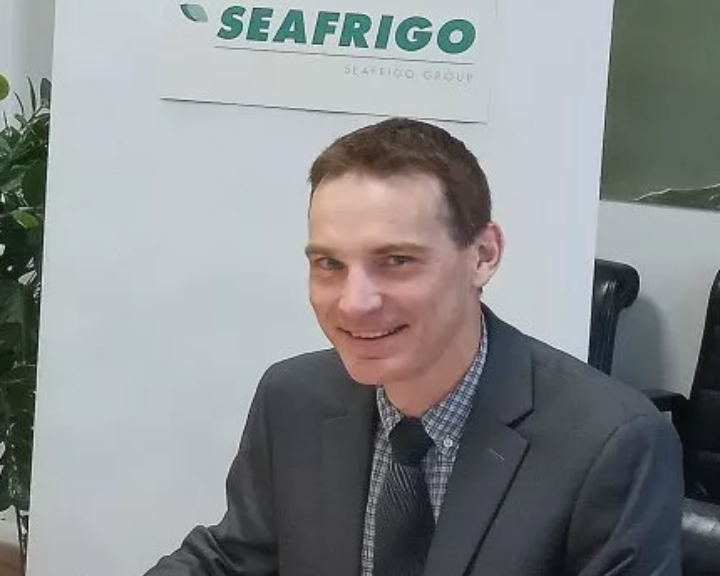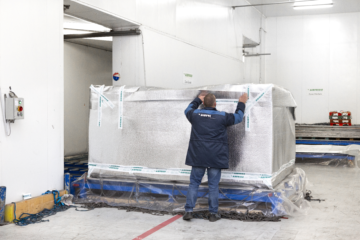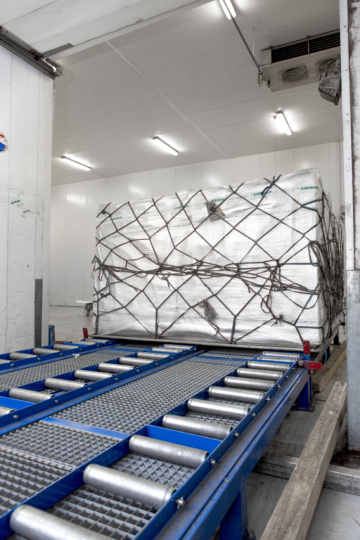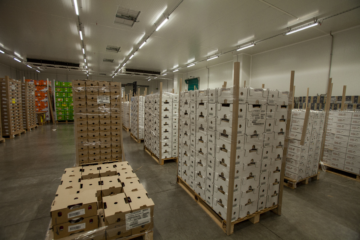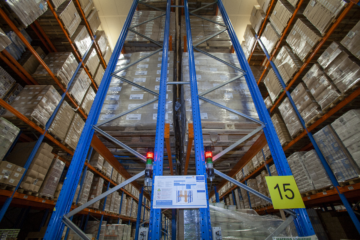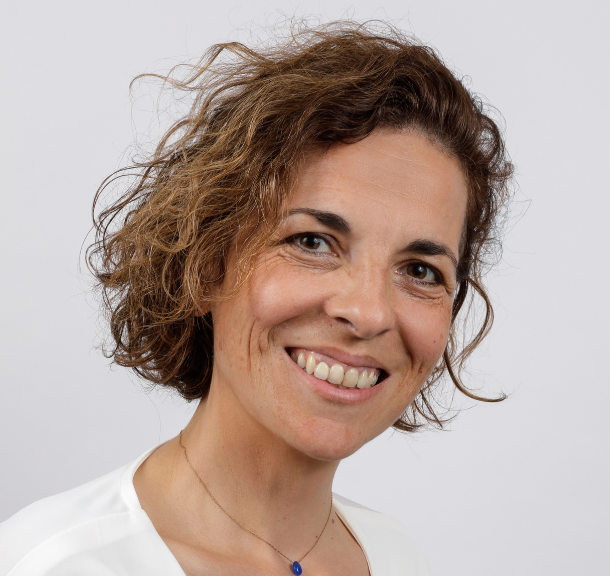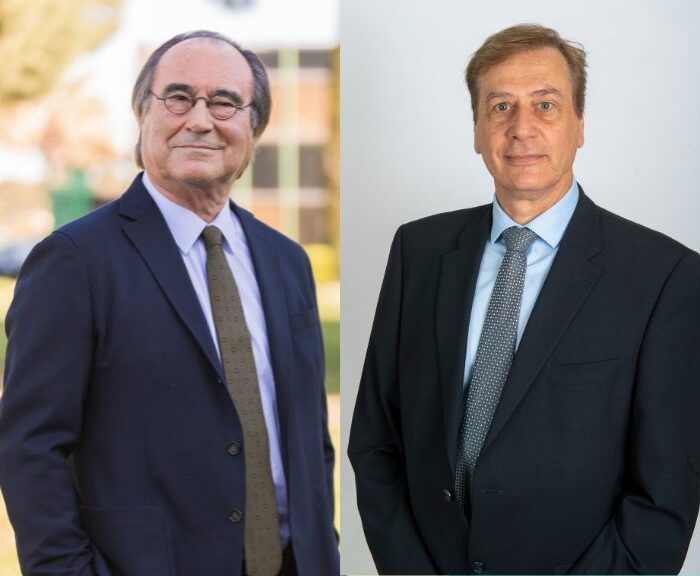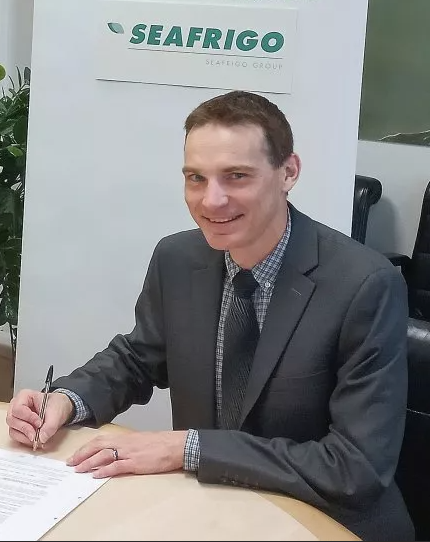
Seafrigo is a logistics company specialized in the global food logistics chain. It is specialized in handling frozen, chilled and ambient products with reefers and refrigerated warehouses. Through its global network of offices and variety of services it provides – ocean freight, air freight, warehousing, hinterland modalities, and customs brokerage – they are experts of the food supply chain. In this interview, the AIVP explores Seafrigo’s knowledge in relation to goal 7 of the AIVP Agenda 2030, “Quality food for all”.
Interview with Stéphane Desseigne, Group Development Director.
Global food supply chain company
AIVP – Seafrigo has ports of call all around the world and is involved in many of the logistical aspects along the transportation route. As a global company, what do you believe is your role in the maintenance of the food supply chain?
Technically, freight forwarding around the food supply chain is our specialty. That is the reason we are very specialized. You need specialists to manage products that are under temperature control. The most important thing with food products is to maintain the temperature, track it, and be sure that while moving the products from one port to another you can guarantee the food safety. It also guarantees the consumer that the food has been handled with care. Therefore, it is extremely important for two reasons. First, it is vital for the health and security of the consumer. Second, it helps avoid waste because, if we do not respect the cold chain, products are spoiled. This would generate a waste of product and money, which we would like to avoid. Already, a lot of products that are handled with care between the producer and the consumer go to the garbage. Seafrigo has decided to be part of the chain to help avoid this waste of food as much as possible.
Therefore, our role in the food supply chain as specialists guarantees that the food being shipped arrives from port to port safely. It is what we guarantee our customers and consumers. We are the middlemen.
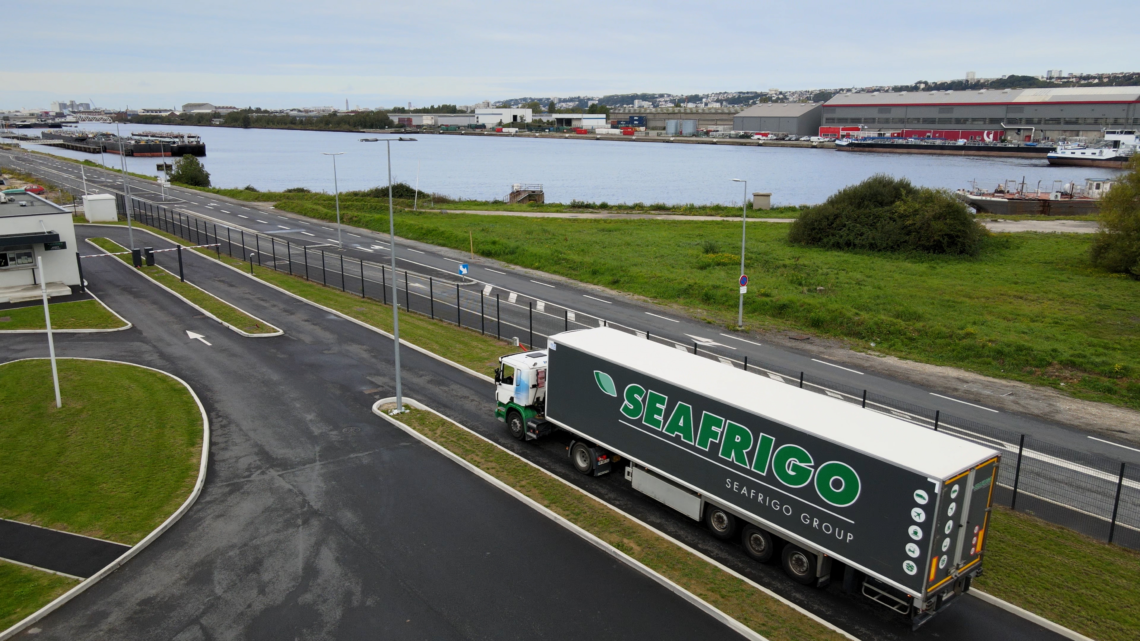
Centralising services and reducing waste
AIVP – Seafrigo offers food processing services, including e-commerce fulfillment and re-packaging. Does the centralization of this process into your company aid to combat food waste?
Yes, for one main reason. You have two ways in which you can transport products from point A to point B. If you imagine that at the origin point you start to customize the products with brand labels it limits where the goods can go. For example, a good that is produced in France and is labeled with “Walmart” at the point of departure, it can only go to Walmart. However, if the consumer does not acquire the entirety of the product or does not want it anymore, the product is wasted as it will be destroyed. This is because it costs too much to repack the products at the destination.
On the contrary, you can transfer the raw material. If you transfer the raw materials, such as seafood, which is stored in big bags in frozen facilities in the US, you increase flexibility in the recipient. Processing the food at the destination allows for last minute decisions when receiving orders. You pack the product at the destination with the certainty that it is desired by a customer. This gives a better chance to the goods to be sold and lessens waste. If a deal with Walmart falls through, you can still sell it to another supermarket, only pack it once, and allow for the product to reach the consumer.
The food processing services we have at the destinations help to avoid additional waste of food. The centralization process helps give more flexibility in where the goods end up and the quantity of products can vary more easily as well. When you have more than one solution for a product, there is a smaller chance of wasting it. When you have only one solution, you limit your own capabilities to use the products, with the risk of wasting it. The processing at the destination can also be a way to preserve the products. The seafood can be moved in large quantities while frozen, defrosted safely at the destination, and sold like fresh to markets locally. To defrost a product, you need to respect certain processes, to be sure that it is done securely and guarantee that there are no health issues with the product. Seafrigo has the capacity to do this through the variety of services we provide.
The ecological footprint of warehouses and refrigerated containers
AIVP – Seafrigo deals with frozen and chilled ingredients on a regular basis, making reefers (refrigerated containers) and temperature-controlled warehouses necessary.What measures do you take to reduce the ecological footprint of your reefer containers and your warehouses?
If we first consider the matter of the warehouses, to reduce our footprint and energy consumption you need to have modern warehouses. It is certain that if you use the latest technology, in the next 5-10 years it will be more respectful of the environment than a facility that is 30-40 years old. So, there is a need to create new facilities and to modernize the facilities worldwide. This has two objectives: reduce and follow the good trend set by the UN SDGs and better preserve the products that are stored.
Technology has greatly improved recently so there are a lot of options at our disposal. The first one is the choice of gas you use to refrigerate the warehouses. In the past, many companies used chemical products that had negative impacts on the environment, like Freon. There are some gases that are CO2 neutral, such as ammonia. There are also new technologies that can be put in place for the management of the refrigeration system. This allows the system to start-and-stop to prevent it being on continuously. It can also help check the temperatures and reduce the electric load consumption.
It is the same for the electricity you need to run a warehouse. It cannot be denied that we still need electricity to power the warehouses, so we cannot arrive at zero consumption. However, Seafrigo advocates adding solar panels, which help with the whole consumption. The difficulties with solar panels depend on the country in which you are situated. Some countries, such as the USA, have no issues putting them on their warehouses but it is more complex in other countries, such as France. They have more complexities between their environmental laws and the risks associated to solar panels (e.g. fires). As this technology improves and increases in importance, it is certain that the laws will adapt to permit the placement of panels on refrigerated warehouses.
It is a similar story for reefers: newer ones are better for the environment. However, it is also different because you need to plug reefers in to an electrical base to ensure that it is functioning. Technology needs to be improved and there is work that needs to be done on reefers and their consumption, but it can be expected that in a couple of years, similar technology to the warehouses will be available for reefers. Seafrigo is not in control of the reefers as the shipping lines own the reefers. Shipping lines have the ambition to reduce their CO2 footprint. Their priority is fuel used in the boats before improving the reefers, but they are very interested in doing this in the next few years.
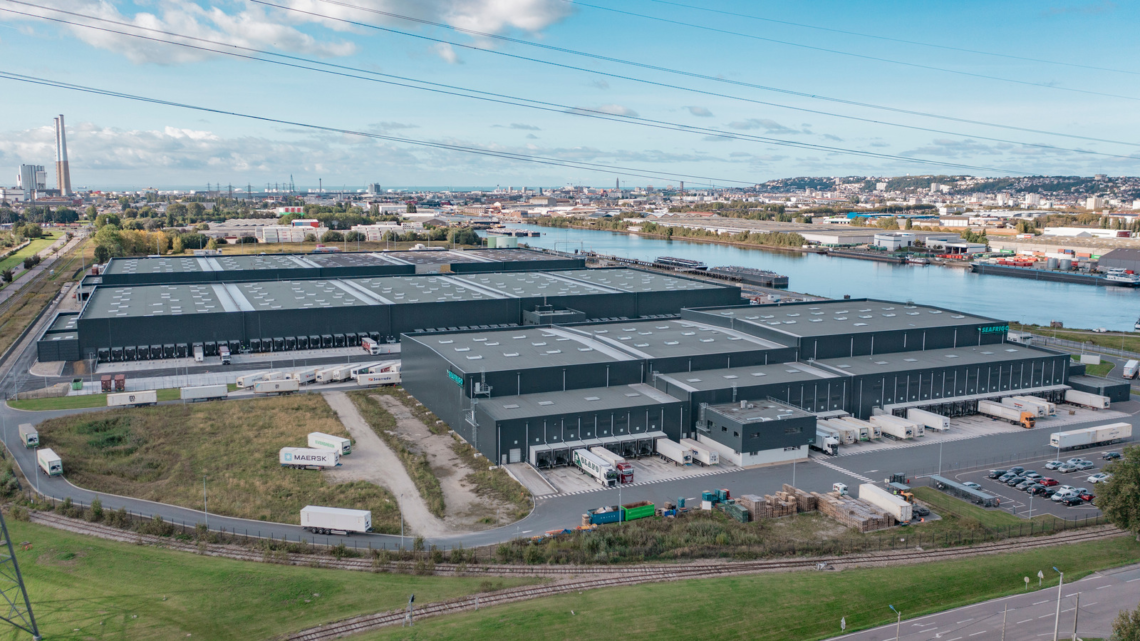
Organic products
AIVP – An important subgoal of AIVP’s goal on “Quality food for all”, is the promotion of fair trade and organic and local production. Does the fragility of organic or fair-trade products require particular precautions to be taken?
Yes, organic products need to be managed properly. In a way you need to be careful with all products but within the product you need to be careful of cross-contamination. Within the shipments, you need to be careful about cross contamination. Organic products cannot be mixed with non-organic ones as they would lose their organic label. You need to have specific areas and specialized warehouses that have received organic certifications. However, once it has reached this base it is managed in the same way all along and we can guarantee at the end the quality of the product. If it is a raw or exposed product, they require more care during manipulation.
Fair trade products are the same as they can have the same issues as organic products. It can be more difficult to identify and track them as they are not necessarily identified as fair-trade products from the beginning. The label becomes more interesting in the logistics side, in the way they are produced and sold, and thus the transport chain is less involved.
The identification and management, once again, also has national and regional differences. Generally, there is more interest in the organic products – how to store them, identify them, etc. Some products labelled organic in the USA would never pass the organic requirements in France, due to differences in definitions and standards. Every single country, due to its culture, has different ways to manage foods. France, for example has a culture which values its food as natural as possible. This means that whole milk is used for certain cheeses but that the population has knowledge on which goods can be consumed by whom (e.g. pregnant women know which foods they should avoid). However, in the US the regulations are turned more to protecting the consumers. This means using pasteurized milk for safety reasons and assuming the consumer has no knowledge. The bottom line is that everyone, from countries to logistics enterprises like us, want to reduce the risks of consuming goods.

